1. Elbridge Gerry Gave Us Gerrymandering—and Hated It
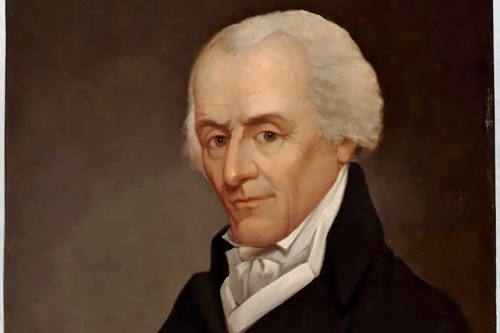
Gerry signed the Declaration of Independence and later became vice president, but his name lives on in a much more controversial way. When he was governor of Massachusetts, his administration redrew voting districts to favor his political allies—creating the “Gerry-mander,” Erick Trickey of Smithsonian Magazine explains. Ironically, Gerry didn’t love the move himself but signed the bill anyway. Today, it’s one of the most divisive tactics in American politics.
Gerry’s legacy is a weird mix of principle and political compromise. He fought against centralized power but caved to political pressure. If he were alive now, he’d be the reluctant viral meme, trending for something he didn’t even support wholeheartedly. Talk about an internet irony.
2. Thomas Jefferson Probably Fathered Children With an Enslaved Woman

Jefferson’s complicated legacy got even messier when DNA evidence in the late 1990s supported the claim that he fathered several children with Sally Hemings, an enslaved woman he owned, Farah Stockman from The New York Times shares. Hemings was believed to be his late wife’s half-sister, making the whole story even more tangled. This wasn’t just whispered scandal—it was something his opponents talked about in print during his lifetime, but it was brushed off for centuries. Today, it would be the subject of think pieces, Twitter threads, and DNA test drama.
Jefferson never publicly acknowledged any of the children, even though many of them were freed later in his life. The silence was strategic, not forgetful. A man who wrote about liberty while owning over 600 people had a lot to hide. If this came out in the age of Instagram reels and exposé podcasts, it would break the internet in hours.
3. Benjamin Franklin Was a Party Animal (and Maybe a Spy)

Ben Franklin wasn’t just the guy flying kites in thunderstorms—he was also a flirtatious bon vivant with a reputation for wild nights in Paris, according to Kelsa Pellettiere from The Bulwark. While serving as ambassador to France, he became a staple of the French social scene, hobnobbing with aristocrats and reportedly having multiple affairs. Franklin himself joked about his fondness for older women in a now-infamous letter giving advice on choosing a mistress. Basically, he would’ve been that Twitter uncle you follow for wisdom… and block during brunch.
But there’s more: historians suspect Franklin may have dabbled in espionage. His house in London was later found to be a hub for British spies, and there are hints he may have known—or at least looked the other way. The line between diplomacy and spycraft was thin, and Franklin danced right on it. He would’ve trended on every platform for both scandal and swagger.
4. Alexander Hamilton Was Caught in America’s First Sex Scandal
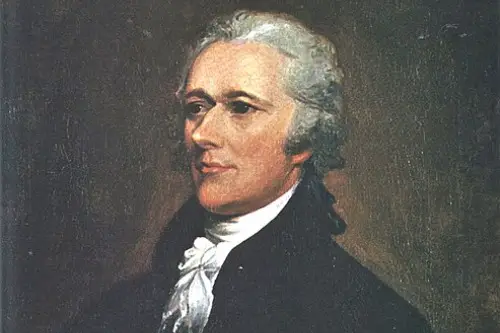
Hamilton was brilliant, brash—and bad at hiding his affairs, Angela Serratore of Smithsonian Magazine explains. In the 1790s, he became the central figure in what’s considered the first major American political sex scandal. He had an affair with a woman named Maria Reynolds and was blackmailed by her husband. Instead of denying it, Hamilton published a pamphlet confessing to everything—publicly.
It was a bold and bizarre move, and it torpedoed his political future. Imagine if a presidential hopeful today tweeted a PDF of his own affair to clear his name—chaos. The scandal didn’t just end his dreams of higher office; it also laid bare his complex mix of arrogance and transparency. Hamilton fans would be divided in the comments section forever.
5. John Adams Wrote Love Letters That Were… Intense
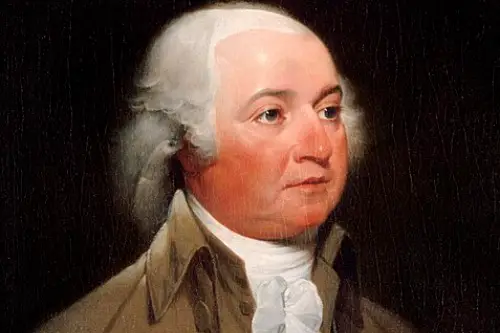
John Adams might seem stiff and serious, but his love letters to his wife Abigail are swoon-worthy and, at times, shockingly personal. He called her his “dearest friend” and wrote about longing for her in vivid detail while he was overseas. Their correspondence spans over a thousand letters, many of which feel like they belong in a romance novel. It’s a softer, more emotional side of a man often seen as grumpy and combative.
But Adams also had an ego that barely fit in the room. He feuded with almost everyone—including Jefferson, Washington, and even his own vice president. His insecurity about legacy led to some petty political behavior, like packing the courts with allies before leaving office. The contrast between romantic softie and political firestarter would confuse the algorithm in the best way.
6. James Madison Was Shy, Sickly—and Master of the Political Backroom Deal

He may be the “Father of the Constitution,” but James Madison was not the bold, speech-giving type. At just over five feet tall and plagued by chronic illness, Madison avoided the spotlight and let others do the talking. But behind the scenes, he was pulling the strings with surgical precision. He worked tirelessly to build consensus and shape the early Republic’s foundation—quietly.
Don’t let the shy demeanor fool you; Madison could be ruthless. He helped create the Federalist Papers, then pivoted to oppose many of the ideas he helped sell. He even helped start the Democratic-Republican Party to counter the policies of his former ally, Hamilton. If Madison had a Reddit account, it would be full of strategic takedowns in r/politics.
7. John Jay Was the Original “Deep State” Operator
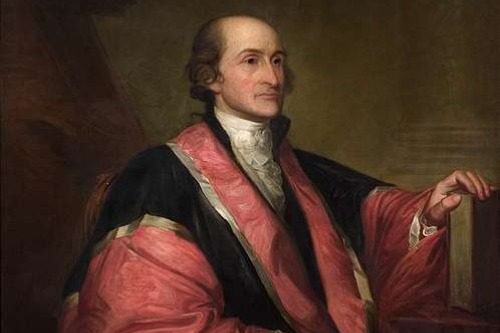
John Jay is mostly remembered for being the first Chief Justice of the U.S., but he was also one of the most connected men in early American politics. He ran intelligence networks during the Revolution and was involved in secret negotiations with Britain before the war even ended. Jay understood that diplomacy wasn’t just about speeches—it was about secrets, too. Think of him as the guy who knew where all the metaphorical bodies were buried.
He also wasn’t above manipulating public opinion. When co-writing the Federalist Papers, he used pseudonyms to guide public support without revealing his hand. Jay’s work helped lay the groundwork for America’s intelligence community. If leaks came out today showing what Jay knew and when, he’d be trending with #FoundingFBI.
8. Patrick Henry Was a Hypocrite About Freedom
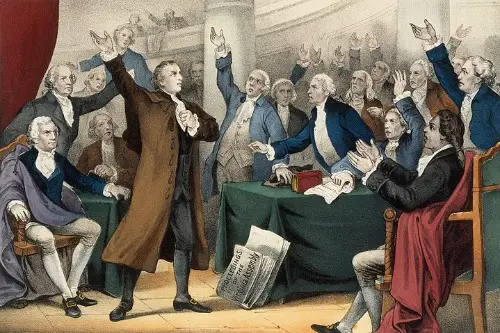
“Give me liberty or give me death!” is iconic—but Patrick Henry didn’t extend that liberty to everyone. Despite being one of the loudest voices for American independence, Henry owned slaves and did little to challenge the institution. He even admitted that slavery was wrong but claimed it was too hard to give up. That moral gymnastics would be ripped apart today.
He was also suspicious of the U.S. Constitution, fearing it gave the federal government too much power. So while others were busy nation-building, Henry was throwing rhetorical bombs from the sidelines. If he had a Twitter handle, he’d be the firebrand always quote-tweeting mainstream leaders with long threads. He’d be polarizing—and viral.
9. Samuel Adams Was a Master Propagandist
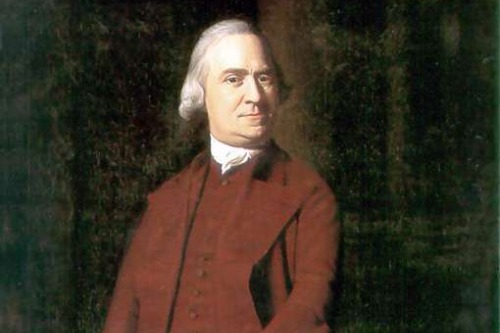
Long before social media, Samuel Adams understood how to spin a story. He helped incite the Boston Tea Party and then made sure the British got all the blame for any resulting violence. Adams knew that public outrage was a political weapon—and he wielded it like a pro. He helped create the Sons of Liberty, basically the 18th-century version of a viral activist movement.
But he wasn’t just a hothead; he was strategic. He planted stories in newspapers and used pseudonyms to shape public opinion. If he were alive today, he’d have a viral Substack and a loyal Patreon following. He wasn’t just a revolutionary—he was a media mastermind.
10. Thomas Paine Died Penniless and Hated
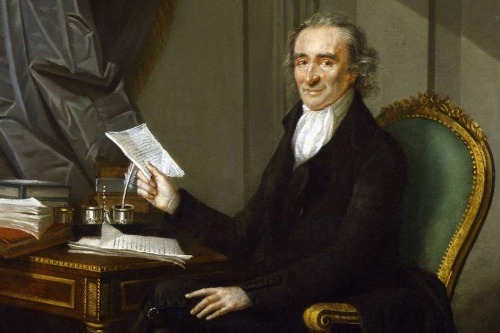
Thomas Paine wrote Common Sense, which arguably sparked the Revolution—but things went downhill fast. After the war, he wrote The Age of Reason, attacking organized religion, and it made him wildly unpopular in the new nation he helped create. His radical views got him ostracized, and when he died in 1809, only six people attended his funeral. Imagine being a national influencer and ending up a total outcast.
Paine’s trajectory was extreme: from hero to pariah. His willingness to speak out against hypocrisy, even among allies, cost him dearly. He would be the type to get “canceled,” then double down with an even more inflammatory essay. His ghost would definitely haunt Twitter threads.
11. Gouverneur Morris Had a Wild Love Life and a Wooden Leg
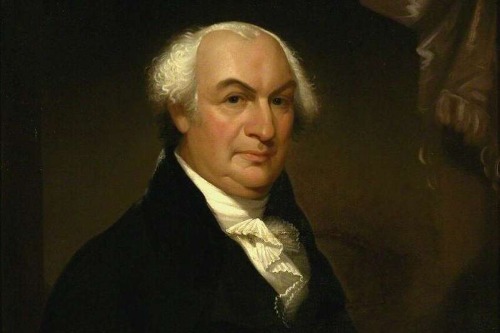
Morris is the guy who actually wrote the final text of the Constitution, but he was far from a dry legal mind. He had a flamboyant personality, a taste for scandal, and a reputation as a ladies’ man—despite having a wooden leg from a carriage accident. His diaries detail numerous affairs and assignations, even while he held high office. He lived like he didn’t care who knew.
He also openly criticized slavery in ways that made Southern delegates furious. Morris was bold where others were cautious, both personally and politically. If he lived today, he’d be trending on TikTok for his chaotic energy and high-profile flings. The combination of legal brilliance and tabloid fodder would keep everyone talking.
12. Aaron Burr Was an Ambitious Schemer (Even Before the Duel)
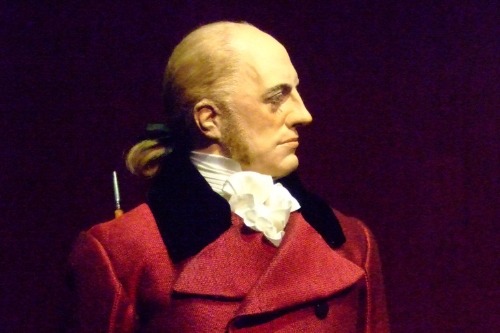
Yes, he killed Hamilton, but Burr’s secrets ran deeper. He schemed constantly behind the scenes and even got caught up in a bizarre plot to create an independent empire in the Southwest—something that led to his arrest for treason. Though he was acquitted, the scandal destroyed what was left of his reputation. He spent the rest of his life as a kind of political ghost.
Burr was charming and cunning, but he burned bridges everywhere. He played both sides and never hesitated to betray allies when it suited him. In today’s world, Burr would be the headline of every political drama podcast. Think House of Cards, but real—and with duels.
13. Henry Knox Smuggled Cannons With Zero Experience
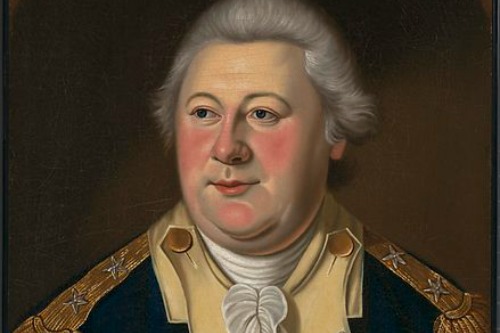
Knox was a bookseller turned general, and he somehow pulled off one of the most audacious feats in Revolutionary War history. Without formal training, he transported 60 tons of artillery over 300 miles through snow and ice from Fort Ticonderoga to Boston. It was a logistical miracle—and he mostly figured it out on the fly. The guy basically Googled “how to move a cannon” and then did it better than anyone else.
But he also had a flair for the dramatic. Knox loved titles, pomp, and ceremony, and as Secretary of War, he often exaggerated his accomplishments. If he were around today, he’d be the subject of memes like “When you fake it till you make it and actually win a war.” His combination of guts and showmanship would dominate TikTok.
14. George Washington Had a Brutal Temper (and Almost Quit the Revolution)

We think of George Washington as the calm, collected Father of His Country, but the guy had a serious temper. During the Revolutionary War, he was known to erupt in rage at his officers, sometimes swearing so furiously that his aides were left speechless. In fact, after a disastrous defeat in New York, Washington privately admitted he was ready to give up the fight altogether. That image of the calm leader crossing the Delaware? It hid a man under crushing pressure and anger.
He also had a secret craving for personal recognition. Washington carefully cultivated his image, even editing his own letters before they were published to make himself seem more noble. If social media existed back then, his feed would’ve been perfectly curated. The founding father wasn’t just a warrior—he was his own PR manager.
15. James Monroe Was in Debt—While President
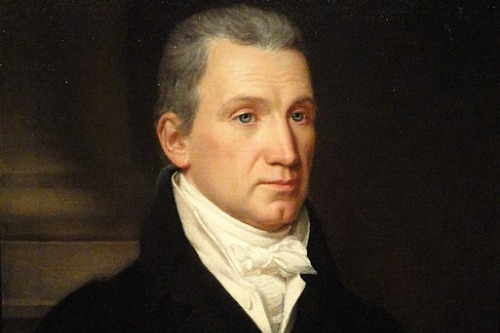
James Monroe, the guy behind the Monroe Doctrine, spent much of his life in deep financial trouble. He used a lot of his own money during the Revolutionary War and never really recovered. Even as president, he was writing letters begging Congress to reimburse him for expenses. The man was basically crowdfunding his administration before GoFundMe existed.
Despite the polished image, Monroe lived with the stress of mounting debt. His financial woes even followed him into retirement, where he had to sell personal property to get by. If screenshots of those letters surfaced today, they’d go viral in hours. America’s fifth president would be trending with #BrokeButFounding.


